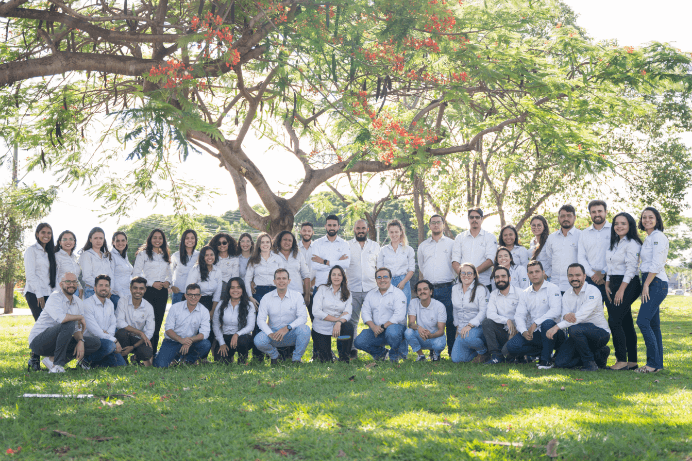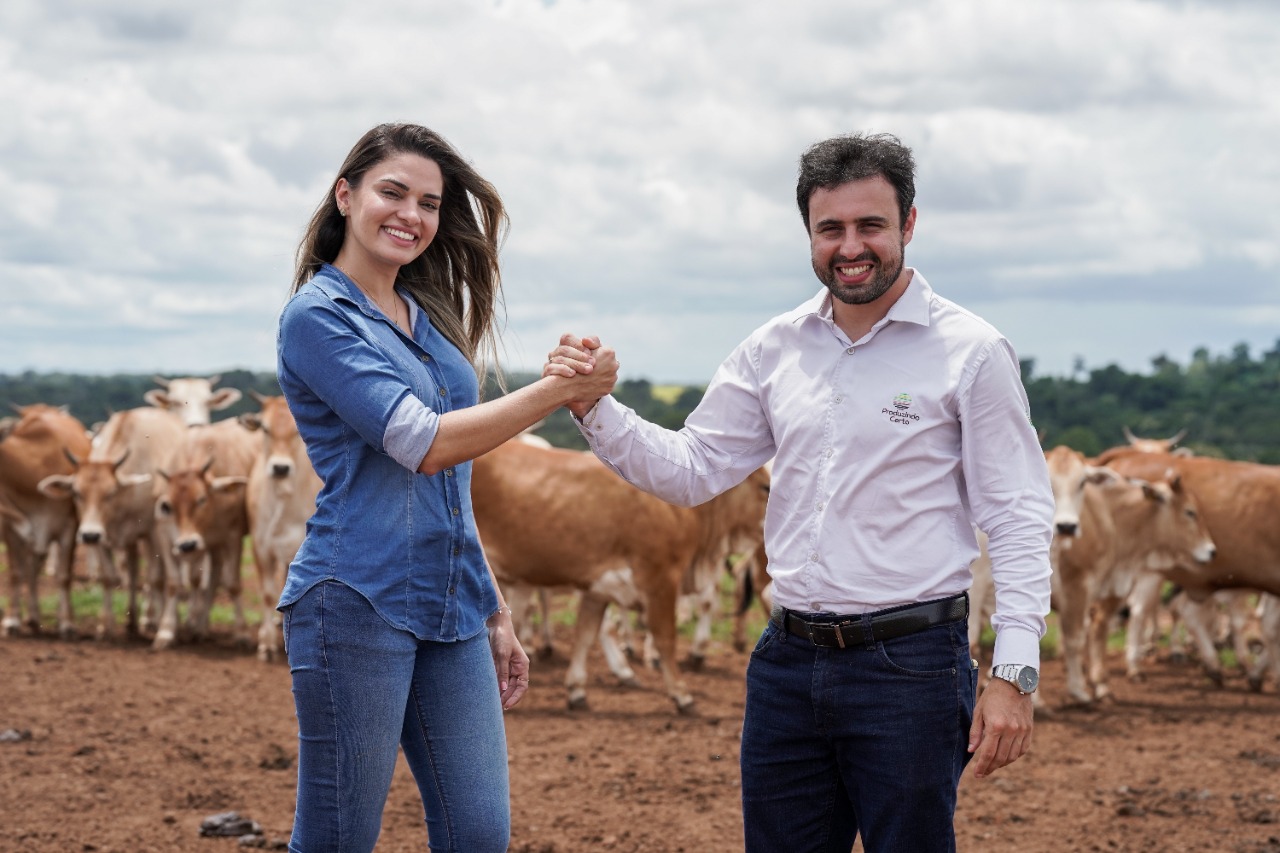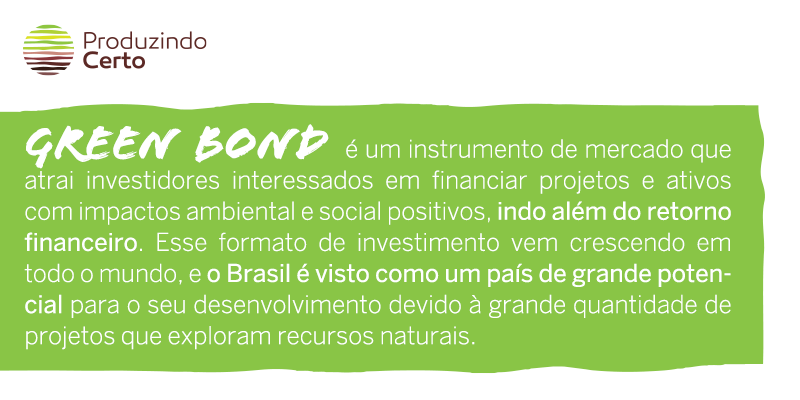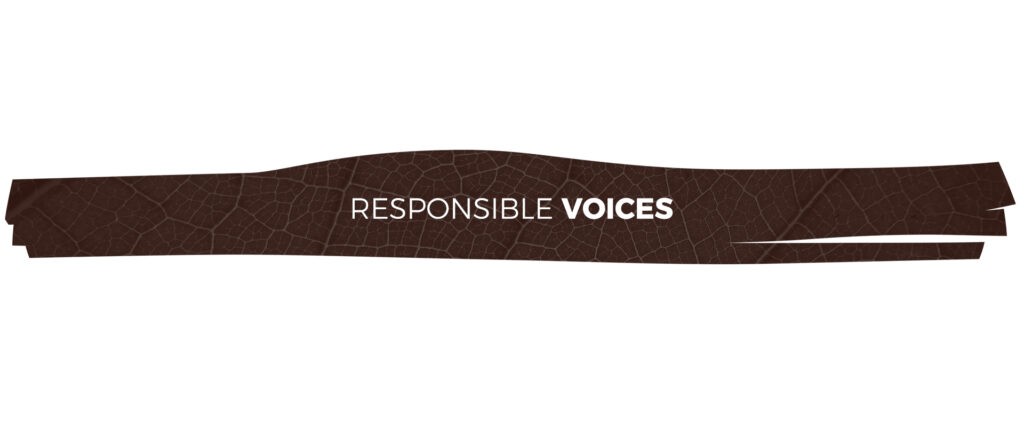
For John Carter, founder of Aliança da Terra and creator of Produzindo Certo, the word sustainability needs to be redefined and the efforts of rural producers recognized
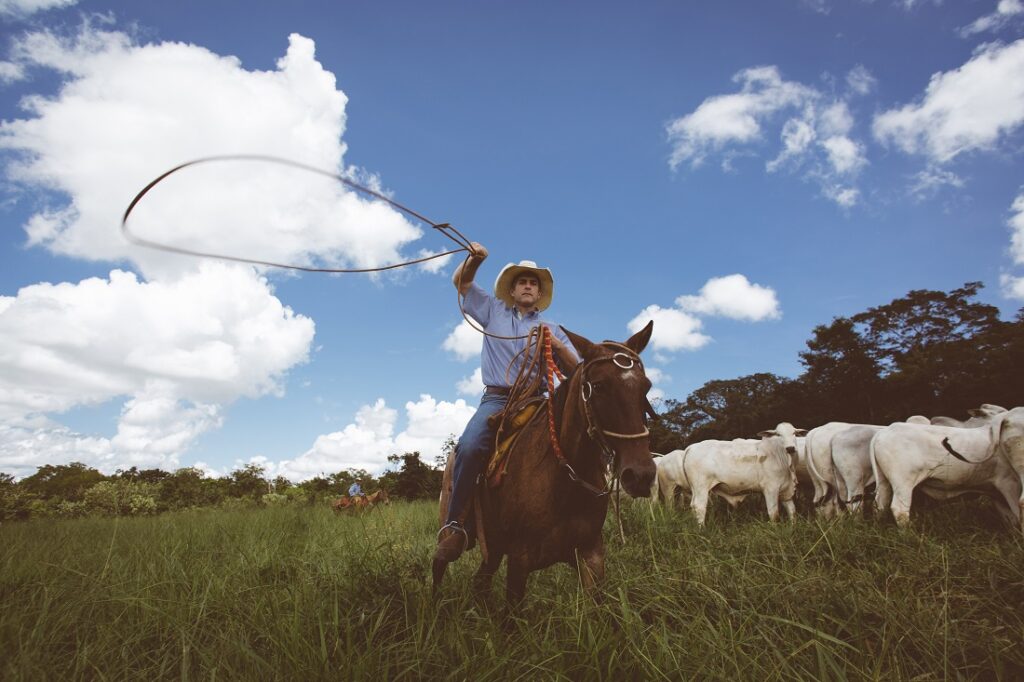
Farmer John Carter created Aliança da Terra with other landowners in Mato Grosso 16 years ago to prove that producers are not primarily responsible for the devastation of the forest. He did so by building a system of social and environmental diagnostics for farms, technical assistance to help farmers and ranchers complete the necessary adjustments, and a data and verification tool that verifies responsible production with evidence.
The work started with rural landowners in eastern Mato Grosso and expanded to the five regions of Brazil, in addition to initiatives in Paraguay, Colombia, and Mexico. This information system designed by John Carter—an American who fell in love with Brazil in the 1990s and chose to live in this region with his Brazilian wife—is today a data platform that monitors more than 1,500 properties and 5.6 million hectares of land.
The NGO Aliança da Terra gave rise to Produzindo Certo, a company that helps producers to continuously develop their social and environmental management and serves companies such as Unilever, ADM, Grupo Pão de Açúcar, Carrefour, and Bayer in the their effort to transform supply chains. Through its work, the NGO has already prevented the emission of more than 1.5 billion tons of greenhouse gases (GHG) into the atmosphere. “With the database we have today, we know what actions are needed to address each issue. This becomes a tool for farms to achieve legal compliance,” he explains.
See the interview with John Carter (below) and his assessment of the challenges faced by Brazilian agriculture.
Produzindo Certo: Aliança da Terra was formed through an initiative by rural producers who resented the lack of support and guidance for adapting to environmental legislation and the challenges in the fields. Can you tell us a little more about how the work started?
John Carter: We noticed that what was being said in the international media did not correspond with what we saw on-site. Producer were being targeted. We adopted a proactive attitude and gathered the people around us. I made friends with many farmers and rangers in the region. There were serious-minded people in the region, as well as illegal settlers, land grabbers, and so on. We wanted to gather rural producers and prove that we were doing the right thing by being transparent and objective. Between 1996 and 2001, organizations, mainly NGOs, promised financial instruments for those who were keeping the forest standing. We started Aliança da Terra in 2004, with scientific partners evaluating properties linked to Aliança. The promise was that this data could put us ahead of the game in terms of carbon issues and payments for environmental services.
Since the first Aliança assembly meeting, held on August 28, 2004, we have expanded from Eastern Mato Grosso to several Brazilian states, in addition to Paraguay, Colombia, and Mexico. We improved our results, albeit the promises to pay for environmental services never came. This started to cause an uneasy feeling. We noticed that the solution was not in the realm of NGOs; it was on the production side, in the private sector, and in the agricultural chain, and so we became a company.
Today, we have partnered with companies in this sector to open a market for those who are doing the right thing, and also to create economic instruments and incentives for those who keep on doing the right thing. We have offered options to companies that are looking for sustainable development solutions while we take care of the producer’s data.
PC: Do you believe NGOs do not understand the reality of producers?
Carter: NGOs have no knowledge of the fields or of the production side. They are not prepared to deliver solutions for the sector. And Aliança has a bottom-up approach, with producers. We have the know-how to prepare farms far beyond what is required by law and to provide this technical assistance to producers.
With the database we have today, we know what actions are needed to address each issue. This becomes a tool for farms to achieve legal compliance. The most significant gain from joining the platform is knowing that they are doing all that is possible. It’s like a life insurance policy.
PC: What is the importance of this new phase, having Produzindo Certo as a company? What are the main benefits that this change can offer companies and producers?
Carter: We have been thinking about becoming a company since 2010 or 2011. We already had 11 years of promises to compensate with resources via carbon or other mechanisms. But they did nothing. It was obvious that our future was where revenues was growing.
We want to increase the number of companies to gain a scale that can affect the market and effectively create real incentives for those who are producing right. It is necessary to reward the non-use of a good portion of the farm, which can vary from 20% to 80% of the entire property, depending on the biome where it is located.
PC: Do you think that green bonds can help finance this work for Produzindo Certo?
Carter: We are making an attempt in the USA and Europe, and we still have no answer. There is a chance, but it is uncommon to see this reach the fields and increase income for producers.
The government wants to privatize the carbon program (known by the acronym REDD). I support this, since I believe it reduces the risk of corruption. If we manage to implement this, the platform would be a very important tool to evaluate the entire process. To check, everyday that the trees are still standing, all year round.
PC: Is the big challenge still to find instruments to socialize the costs of environmental protection?
Carter: It’s the only way out. Most of the farms depend on financing to make it from year to year. In good years, producers manage to repay loans referring to the previous five years, but they don’t walk away with cash in their pockets. Good years allow paying for past loans, but one is never fully out of the hole. It’s a debt slavery mechanism. Within the companies there are people who came from this sector, who have a heart, who have a conscience, and are opting for Produzindo Certo to really help the producer. That’s all we asked for. An honest and timely attempt to protect the environment and prevent damage. Because fires have no owners. After they cross a fence, they burn for two or three months. Honestly, without the Brigade, created by Carter in 2009), there would be no solution for our region.
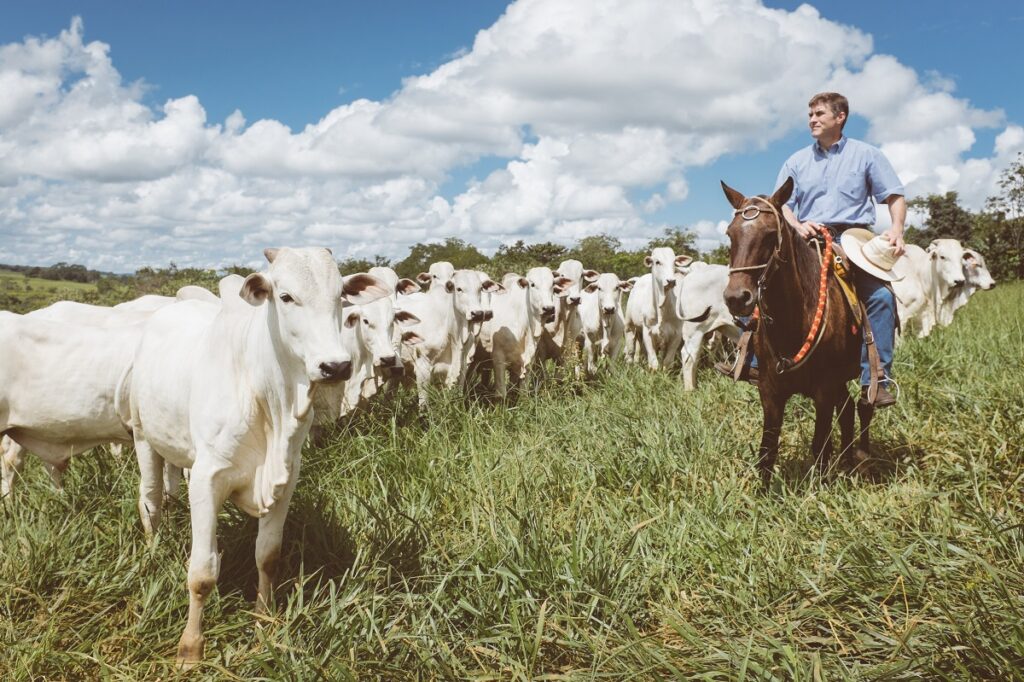
PC: What are your expectations for the future of Produzindo Certo?
Carter: We want to increase the number of clients and farms and add other commodities. In addition to grains and beef, we already have orange juice, tobacco, and coffee. We want to create a Brazilian brand that looks to solve the problem. To take care of this gap in the market and start redefining sustainability in practical terms.
Companies such as Bayer, Unilever, and Santander saw the platform as a social and environmental risk management tool. Through Produzindo Certo, these companies can be sure that things are happening at the field level.
PC: How do you assess the level of awareness of companies in relation to the work of producers and the difficulties in adapting to best social and environmental practices?
Carter: In a way, they accepted the risk of working with us. Our services will show the flaws in the sustainable development system. They need results to shield companies, just as producers have a need to shield their production. We found a partnership; it’s our only way out.
I have no doubt that we will arrive at an economic solution in the future. In this case, producers are taking on the greatest risks. If they don’t comply with what we ask, we’ll have nothing to show.
PC: Are companies more open today to recognizing and valuing the efforts of those who produce responsibly?
Carter: They have no interest in forsaking margins, of paying a premium for environmental services. On our side, we want to solve the problem to allow farmers to work with peace of mind, without being harassed by NGOs, the media, or government. The big gain is that we create economic value on top of actions done in the fields. These companies pay for producers to join the Produzindo Certo system. It is already a gain, since producers enter the platform at no financial cost, comply with the law, and maintain their access to markets.
PC: Forest fires have increased in number again, especially in the Amazon and Pantanal biomes. In your opinion, what do we need for this problem to be controlled?
Carter: In the past 20 years it has been much worse. Proof of this is that we created the Aliança Fire Brigade in 2009 to combat fires in private areas. And today, we hardly ever work in private areas anymore, because nobody is using fires anymore. The fires are coming from conservation areas, state and federal parks, and Indigenous lands—from these areas created for conservation, but without any infrastructure management. It’s not fair to keep blaming producers. Aliança da Terra has created this capacity to support the sector and actually solve its problem.
We knew that this year would burn, and that maybe it would be worse than the year before. Today, in areas where Aliança Brigade operates, fires are under control: Xingu Indigenous Park, Serra Azul State Park, Barra do Garças, and nine conservation units in Goiás. With scarce resources and resolve to tackle the problem, it can be done.
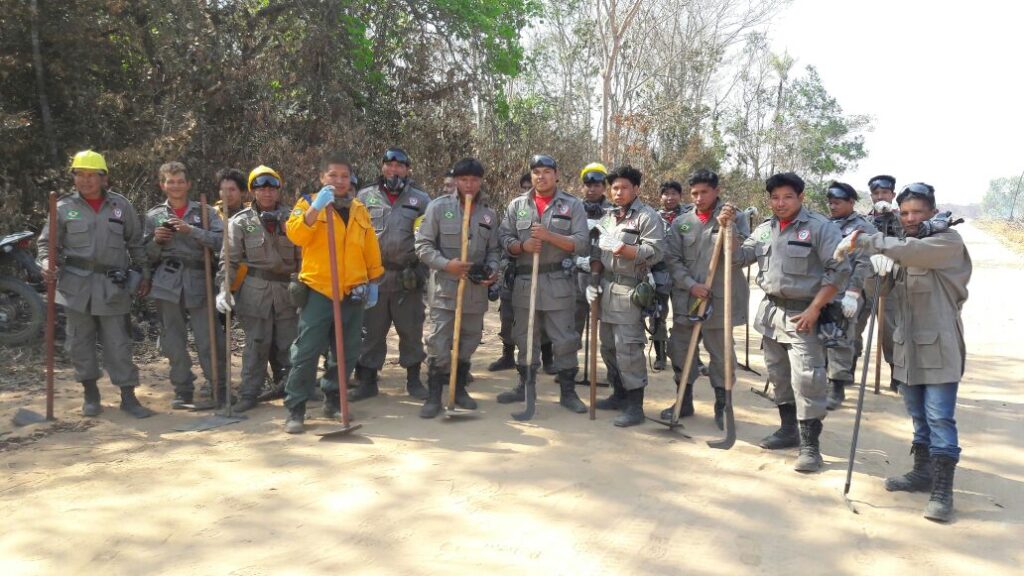
PC: How has Aliança Fire Brigade been preparing to combat fires?
Carter: Brigade members are the most advanced professionals in the Amazon. Prevention is simple: we do it during the rainy season. For example, in firefighting, we have the help of Indigenous peoples from the Alto Xingu region, who were trained by our brigade members. We train and lead volunteers in the fields to fight fires. In 11 years, we managed to put out nearly 460 major fires in the states of Mato Grosso and Goiás.
The current government is looking for resources to increase the operation of our Brigade in the Amazon, in all Indigenous areas. I’ve sat down with them three times in Brasilia. They are interested in solving the problem.
PC: You are against the indiscriminate use of the word sustainability. Why?
Carter: Sustainability is defined by whoever is in power. And it is not something static; they are always increasing their demands. But they have no way of showing service with a level of transparency that will convince people that it actually works.
The costs of the sector increase. Large companies manage to defray this expense. But small and medium-sized companies do not, and their farms are always in the red. In 20 or 30 years, the small ones will have been wiped out and the large ones will take it all.
Our platform shows all the work done on farms. And it’s easy to expand that. If they were interested in expanding this and supporting producers in this fight, we would solve the Amazon problem in terms of private lands.
PC: What is your definition of sustainable development/responsible production?
Carter: Our role is to redefine sustainability, as we are doing. You can click all the results created via the platform and show their cost. The fight is all about money. We are creating mechanisms to define how much it costs to deliver sustainable development in practical terms. Our role is to do that and use it as a negotiation driver.
The market is not paying this cost. It all falls on producers. And we won’t be able to solve the problem if they don’t join the fight as partners. The companies that partnered with Produzindo Certo want to tend to their profit, but they also looking for a solution. They are trying, within the capability of their companies, to help reach a balance.
